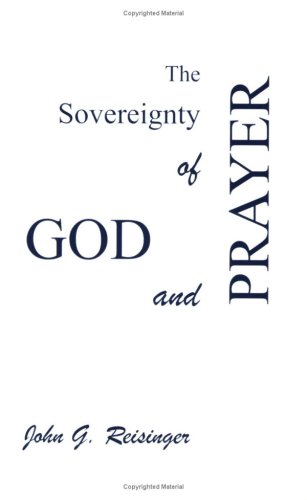Quotes about Prayer-Unanswered
Cold prayers always freeze before they reach heaven.
Prayer may not change your circumstances, but it will change your perspective.
We must not think that [God] takes no notice of us, when He does not answer our wishes: for He has a right to distinguish what we actually need.
Never make the blunder of trying to forecast the way God is going to answer your prayer.
It will be a wonderful moment for some of us when we stand before God and find that the prayers we clamored for in early days and imagined were never answered, have been answered in the most amazing way, and that God’s silence has been the sign of the answer. If we always want to be able to point to something and say, “This is the way God answered my prayer,” God cannot trust us yet with His silence.
Some prayers are followed by silence (from God) because they are wrong, others because they are bigger than one can understand. It will be a wonderful moment for some of us when we stand before God and find that the prayers we clamored for in early days and imagined were never answered, have been answered in the most amazing way, and that God’s silence has been the sign of the answer.
It sometimes turns out that the longest-delayed answers to prayer are the most faith-building, because when they are finally answered we see in them most clearly the hand of God.
Living in the Grip of Relentless Grace, P&R Publishing, 2002, p. 4. Used by Permission.
God can answer prayer, though He bestow not the very thing for which we pray. He can sometimes better answer the lawful desires and good end we have in prayer another way. If our end be our own good and happiness, God can perhaps better answer that end in bestowing something else than in the bestowment of the very thing which we ask. And if the main good we aim at in our prayers be attained, our prayer in answered.
We ought to rejoice that in God’s great wisdom and love He does in fact answer all of our requests, though to be sure, He says no to some things because our having them would hurt us in the long run. We also ought to rejoice that in His wisdom He gives us what we ask at the best time, rather than at an earlier time when our very limited judgment thinks it would be best. And finally, we ought to rejoice that God’s love and wisdom gives us what often turns out to be far better than the precise thing for which we had asked (Eph. 3:20).
The Unity of the Bible, Zondervan, 1992, p. 165. Get this book!
He hath engaged to answer the prayers of His people, and “fulfill the desires of those that fear Him.” But it proves a long voyage sometimes before the praying saint hath the return of his adventure. There comes oft a long and sharp winter between the sowing-time of prayer, and the reaping. He hears us indeed as soon as we pray, but we oft do not hear of Him so soon. Prayers are not long in their journey to heaven, but long a coming thence in a full answer.
A Puritan Golden Treasury, compiled by I.D.E. Thomas, by permission of Banner of Truth, Carlisle, PA. 2000, p. 220.
Even if all the things that people prayed for happened – which they do not – this would not prove what Christians mean by the efficacy of prayer. For prayer is request. The essence of request, as distinct from compulsion, is that it may or may not be granted. And if an infinitely wise Being listens to the requests of finite and foolish creatures, of course He will sometimes grant and sometimes refuse them. Invariable "success" in prayer would not prove the Christian doctrine at all. It would prove something more like magic – a power in certain human beings to control, or compel, the course of nature.
God will either give you what you ask, or something far better.
When Christ delays to help His saints now, you think this is a great mystery, you cannot explain it; but Jesus sees the end from the beginning. Be still, and know that Christ is God.
Christ frequently gives us the desires of our heart, though not at the peculiar time we desired, but a better time.
Did God not sometimes withhold in mercy what we ask, we should be ruined at our own request.
It is not enough to begin to pray, nor to pray aright; nor is it enough to continue for a time to pray; but we must patiently, believingly, continue in prayer until we obtain an answer; and further we have not only to continue in prayer unto the end, but we have also to believe that God does hear us, and will answer our prayers. Most frequently we fail in not continuing in prayer until the blessing is obtained, and in not expecting the blessing.
God often takes a course for accomplishing His purposes directly contrary to what our narrow views would prescribe. He brings a death upon our feelings, wishes and prospects when He is about to give us the desires of our hearts.
If we seek from the world the pleasures we should seek in God, we are unfaithful to our marriage vows. And, what’s worse, when we go to our Heavenly Husband and actually pray for the resources with which to commit adultery with the world [Jas. 4:3-4], it is a very wicked thing. It is as though we should ask our husband for money to hire male prostitutes to provide the pleasure we don’t find in him!
Desiring God, 1996, p. 141, Used by Permission, www.desiringGod.org. Get this book!
Set no time to the Lord the creator of time, for His time is always best.
A Puritan Golden Treasury, compiled by I.D.E. Thomas, by permission of Banner of Truth, Carlisle, PA. 2000, p. 220.
Jesus hears us, and in His own good time will give an answer… He may sometimes keep us long waiting…but He will never send us empty away.
The Bible is very clear on the reasons why prayers go unanswered, and every reason centers on the believer’s relationship with God. God will not cooperate with prayers of mere self-interest, or prayers that come from impure motives. The Christian who clings to sin closes the ear of God. Least of all will God tolerate unbelief, the chief of sins.
Spiritual Leadership, Moody Publishers, 1967, p. 91-92. Get this book!
God delights to give His children “every good…and every perfect gift” (Jas. 1:17), but if the physical blessings we desire were always and immediately given at our request, God would become nothing more than a big slot machine in the sky, and our prayers would become meaningless tokens mechanically fed into an apparatus as a means to achieve our whims with which we have no relationship. God would receive no glory, and we would pray our souls into a black hole. Whether God answers our prayers with a “no” or “not yet” or “yes,” His goal is to draw us closer to Himself in a relationship so that we might view Him as our ultimate reward.
If the Lord will but hear us we will leave it to His superior wisdom to decide whether He will answer us or no. It is better for our prayer to be heard than answered. If the Lord were to make an absolute promise to answer all our requests it might be rather a curse than a blessing, for it would be casting the responsibility of our lives upon ourselves, and we should be placed in a very anxious position: But now the Lord hears our desires, and that is enough; we only wish Him to grant them if His infinite wisdom sees that it would be for our good and for His glory.
When we ask of the Lord cooly, and not fervently, we do as it were, stop His hand, and restrain Him from giving us the very blessing we “pretend” that we are seeking.
Sometimes when we pour out our desires to God, He appears to be indifferent. When the apostle Paul earnestly petitioned God for the removal of his thorn in the flesh, the request was not granted. However, in not giving this desire of Paul’s heart, God gave him his deeper desire. Certainly Paul’s greatest desire was to know God’s grace and power in order to be the most useful servant he could possibly be. God withheld the request in order to give Paul his deepest desire and thus glorify Himself (2 Corinthians 12:7-10).
A Journey to Victorious Praying, Moody Publishers, 2003, p. 59.
Get this book!
If our prayers are not answered – always answered, but not necessarily granted – the fault must be entirely in ourselves, and not in God. God delights to answer prayer; and He has given us His word that He will answer.
If we ask and God does not give, then the fault is with us. Every unanswered prayer is a clarion call to search the heart to see what is wrong there; for the promise is unmistakable in its clearness: “If ye shall ask anything in My name, that will I do” (John 14:14). Truly he who prays puts, not God, but his own spiritual life to the test!
When we confess that we “never get answers to our prayers,” we are condemning not God, or His promises, or the power of prayer, but ourselves. There is no greater test of spirituality than prayer.
Most Christians do not give God a chance to show His delight in granting His children’s petitions; for their requests are so vague and indefinite. If this is so, it is not surprising that prayer is so often a mere form – man almost mechanical repetition, day by day, of certain phrases; a few minutes’ “exercise” morning and evening.
God cannot always grant our petitions immediately. Sometimes we are not fitted to receive the gift. Sometimes He says "No" in order to give us something far better.
Do not stop to ask the writer if God has granted all his prayers. He has not. To have said “Yes” to some of them would have spelt curse instead of blessing. To have answered others was, alas! a spiritual impossibility – he was not worthy of the gifts he sought. The granting of some of them would but have fostered spiritual pride and self-satisfaction. How plain all these things seem now, in the fuller light of God’s Holy Spirit!
It is a very singular thing…that the only petition recorded of St. Paul seeking something for his own individual need [removal of the “thorn in the flesh”] was refused! The difficulty, however, is this: Why did St. Paul, who had the “mind” of Christ, ask for something which he soon discovered was contrary to God’s wishes? There are doubtless many fully-consecrated Christians reading these words who have been perplexed because God has not given some things they prayed for… St. Paul was tempted to think that he could do far better work for his beloved Master if only that “thorn” could be removed. But God knew that Paul would be a better man with the “thorn” than without it.
We all want God’s voice to thunder through the air with the answer to our problem. But God’s is the still, small voice…the gentle whisper. Perhaps there’s a reason. Nothing draws human focus quite like a whisper. God’s whisper means I must stop my ranting and move close to Him, until my head is bent together with His. And then, as I listen, I will find my answer. Better still, I find myself closer to God.
If your prayers were always answered, you’d have a reason to doubt the wisdom of God.
God delays in answering our prayers because men would pluck their mercies green; God would have them ripe.
It may be, remember, that God has indeed answered but not in a way that is obvious to us. And it is possible that nothing is amiss in our praying, but that we haven’t yet seen the answer only because God intends for us to persevere in praying about the matter awhile longer. But we must also learn to examine our prayers. Are we asking for things that are outside the will of God or would not glorify Him? Are we praying with selfish motives? Are we failing to deal with the kind of blatant sin that causes God to put all our prayers on hold?
Spiritual Disciplines for the Christian Life, 1991, p. 79, Used by permission of NavPress – www.navpress.com. All rights reserved. For more information please see the website www.BibicalSpirituality.org. Get this book!
























